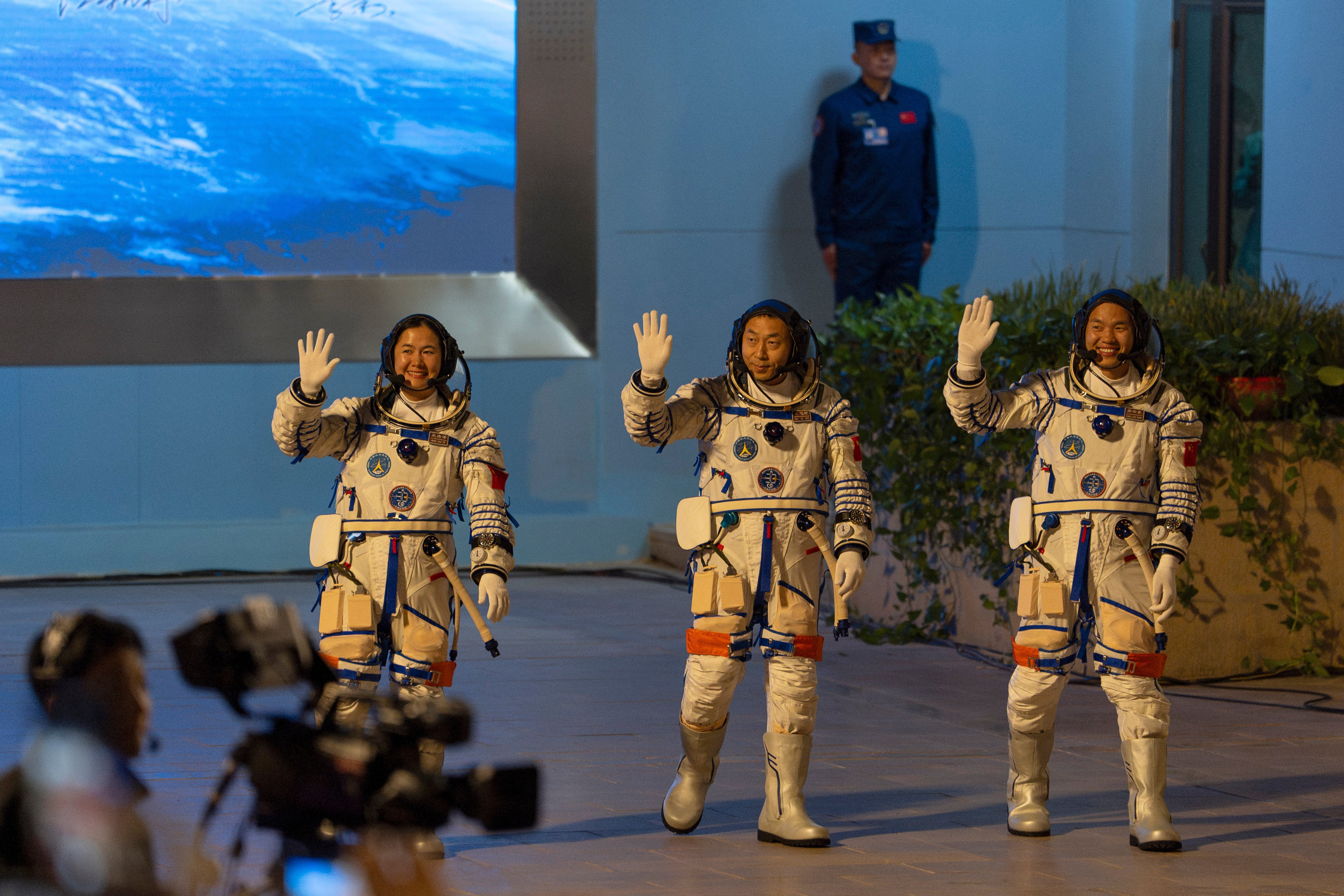China launches youngest astronaut crew to its space station as it expands exploration
Launch comes as China seeks to expand its exploration of outer space
Your support helps us to tell the story
From reproductive rights to climate change to Big Tech, The Independent is on the ground when the story is developing. Whether it's investigating the financials of Elon Musk's pro-Trump PAC or producing our latest documentary, 'The A Word', which shines a light on the American women fighting for reproductive rights, we know how important it is to parse out the facts from the messaging.
At such a critical moment in US history, we need reporters on the ground. Your donation allows us to keep sending journalists to speak to both sides of the story.
The Independent is trusted by Americans across the entire political spectrum. And unlike many other quality news outlets, we choose not to lock Americans out of our reporting and analysis with paywalls. We believe quality journalism should be available to everyone, paid for by those who can afford it.
Your support makes all the difference.China has claimed success in launching a new three-person crew to its space station – including the youngest astronauts sent to its orbiting outpost – amid plans by the country to expand its space programme.
The crew consisting of two men and only the country’s third female astronaut, were launched aboard the Shenzhou-19 spaceship at 4:27 am Beijing time on Wednesday.
The crew will replace the astronauts who have lived on the Tiangong space station for the last six months and are expected to stay until April or May of next year.
The new mission commander, Cai Xuzhe, went to space in the Shenzhou-14 mission in 2022, while the other two, Song Lingdong and Wang Haoze, are first-time space travellers, born in the 1990s.

China built its Tiangong space station after it was excluded from the International Space Station, mainly due to concerns raised by the US over the Chinese program’s control by the People’s Liberation Army, the Chinese Communist Party’s military arm.
In recent years, China has rigorously expanded its space programme, announcing this month an ambitious plan to become a global leader in space science by 2050.
The unveiled program aims to “achieve high-quality development in space science, drive breakthroughs in space technology innovation, upgrade space applications, rank among the world’s leading space nations, and establish China as a global leader in space science,” according to the China Academy of Sciences (CAS).
Besides building its space station and launching astronauts to it, China‘s space agency has landed an explorer on Mars, and aims to put boots on the moon before 2030 – a feat that would make it only the second nation after the US to do so.
It aims to expand research on areas including black holes, Mars and Jupiter, as well as the search for habitable planets and signs of alien life as part of a three-phase strategy.
The first phase, with a completion target by 2027, would focus on China operating its space station and continuing its lunar exploration programme.
The “manned lunar exploration is a strategic endeavour that promotes the progress of human civilisation and demonstrates the responsibility of a major power”, Lin Xiqiang, China’s Manned Space Agency (CMSA) spokesperson said.
The country’s Moon program is part of its growing rivalry with the US, which is still considered the leader in space exploration, as well as with others, including Japan and India.
As part of the latest launch to the Chinese space station, the orbiting outpost will receive resupplies, aiding the crew in performing spacewalks, and replacing and instal equipment to protect them from space debris.